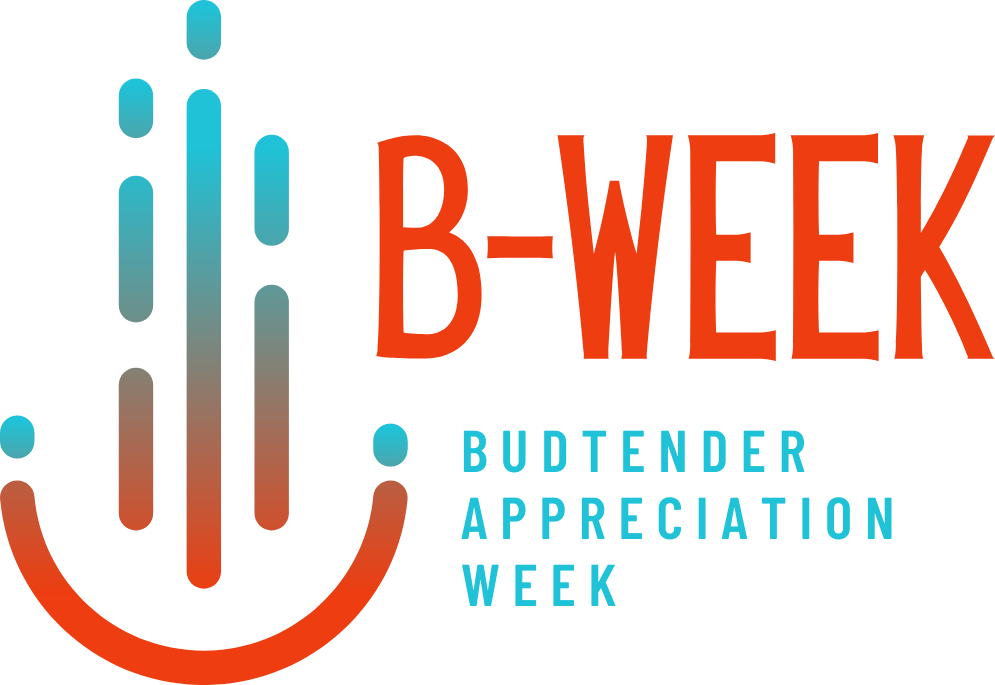
Today there are many cannabis-based products available, from whole-plant formulations, available at medical dispensaries, to completely man-made synthetic drugs that are FDA approved.
Some of these synthetic cannabinoids mimic classic cannabinoids like THC, while others simply activate and modulate the endocannabinoid system in their own unique way, producing somewhat similar benefits to the cannabis plant.
However, there exists a darker side to these synthetic cannabinoids that carry risks far greater than the cannabis plant could ever pose, and it is important to understand the differences.
The Good, the Bad & the Ugly – Exploring the Light & Dark Side of Synthetic Cannabis:
- The Good – These are drugs that have been safely tested and are still prescribed and used today to treat a variety of diseases and ailments.
- The Bad – Drugs that failed clinical testing and/or caused disastrous consequences, resulting in their recall.
- The Ugly – Non-pharmaceutical, non-FDA approved synthetic cannabinoid-like compounds that behave nothing like cannabis in the brain and body. Many of these compounds can be dangerous with severe side-effects.
The Good: Rx Cannabinoid Medications Used Today

Synthetic cannabinoids have been created to abide by the single molecule dogma of pharmacology. This is largely the reason why synthetic cannabinoids have been approved by the FDA rather than full-spectrum, whole-plant therapy; they conform to a model that’s stable and understood (and, of course, patentable).
While access to whole-plant medical cannabis expands across the country, a variety of cannabinoid medicines currently exist and can be found in pharmacies.
Some include pure cannabinoid isolates, man-made synthetic cannabinoids that mirror the structure and function of phytocannabinoids, and man-made synthetic cannabinoids that produce powerful antiemetic effects for cancer patients undergoing chemotherapy, often when other drugs fail.
Dronabinol (Marinol)
Dronabinol, sold under the market names of Marinol and Syndros, is synthetic Δ⁹-THC. Approved by the FDA, this synthetic cannabinoid is generally only used to treat chemotherapy-induced nausea and vomiting.
Although it is arguably not as efficacious as whole-plant therapy, the benefits in certain medical settings (cancer, sleep apnea) landed this synthesized THC drug a Schedule II classification from the DEA.
It is still in use today and can provide relief from the side effects of cancer treatment.
Nabilone
Nabilone, or Cesamet, is a synthetic that mimics THC – it is similar enough in structure to have some positive effects, but it is not THC or any other known cannabinoid.
While it too is used to treat nausea and vomiting for those undergoing chemotherapy, it is also administered for the treatment of movement disorders such as Parkinson’s, chronic pain, multiple sclerosis, and dystonia.
It has even been used to treat nightmares occurring due to PTSD. Nabilone has a slower onset for its peak and a greater dose-dependence of effects, characteristics that were attributed to greater bioavailability.
The Bad: Once Hopeful Rx Synthetics Turned Disastrous & Deadly

These compounds were meant for FDA approval until unanticipated side effects and adverse events abruptly terminated their existence.
Getting new drugs to market certainly isn’t easy, and the reality is that most drugs don’t even make it past animal testing, much less all the way to testing in human, clinical trials.
The FDA has a strict and rigorous review process, for good reason. Nevertheless, sometimes potentially dangerous drugs slip through the cracks during clinical trials, and some even end up on the shelves before their harmful nature is realized.
Rimonabant and Other CB1 Blockers
It’s common knowledge that cannabis stimulates appetite, a side effect endearingly dubbed the “munchies.” Science has now found direct links to our own endocannabinoids and their modulation of leptin levels, a hormone made primarily by fat cells (adipocytes) that stimulates hunger.
Naturally, synthetic chemists and drug manufacturers were extremely hopeful that blocking THC’s partial agonism at CB1 (responsible for the appetite-stimulating properties of the endocannabinoid system) would suppress appetite and help obese patients lose weight.
Unfortunately, the involvement of CB1 in human physiology extends far beyond simply controlling appetite and metabolism; the regulation of mood is another major factor affected.
The first CB1 blocker created for obese patients was a globally acting synthetic CB1 inverse agonist called Rimonabant. Patients taking Rimonabant indicated a decrease in hunger, but also an alarming (almost two-fold) increase in anxiety, depression and suicidal ideation.
As such, global blockage of CB1 did more than just suppress appetite; it caused psychiatric side effects so severe that the development of CB1 blockers as promising anti-obesity targets came to a screeching halt.
Unfortunately, we currently don’t fully understand the endocannabinoid system, and this reductionist approach to biology simply isn’t the whole picture.
“Cannabinoid-Based” FAAH Inhibitor Causes Unprecedented Tragedy: Brain Death & Fatality
In the early days of 2016, several news outlets, including the New York Times, the Guardian, and the Independent, reported tragic outcomes for six patients undergoing clinical trials investigating a new cannabinoid-based painkiller in France.
The drug, undergoing a Phase 1 trial, was administered with the hope that it would help with mood, anxiety, and motor problems due to neurodegenerative disease.
It targeted the endocannabinoid system, having been tested on animals before being administered to 90 people.
Six healthy men became ill and were hospitalized shortly after the trial began, suffering potentially irreversible brain damage. One was pronounced braindead.
Early reporting falsely claimed the drug was “cannabis-derived” and/or “contained cannabinoids,” neither of which were ostensibly true, being categorically denied by French’s health minister.
Still, despite following all the regulations, our lack of understanding concerning the endocannabinoid system resulted in the drug being halted.
The Ugly: Black Market Synthetics Deceptively Marketed as “Legal Weed”

These dangerous products generally give a bad name to synthetic drugs, tarnish the reputation of cannabis, and color the perception of medically approved products.
These compounds are rogue synthetics made by clandestine laboratories for recreational use/abuse that act nothing like cannabis, while also carrying extreme risks and hazards to one’s health, which cannabis, and its FDA approved synthetics, do not.
Yet, due to the federally restrictive scheduling of cannabis as a Schedule I drug, laboratories consistently manufacture and distribute synthetic cannabinoids that often have similar chemical structures but present very different pharmacological and physiological effects for the user.
Spice and K2
“Spice,” which attempts to mimic cannabinoid compounds, is implicitly marketed as a “legal high,” making its consumption more alluring to people who believe that they can experience the high from cannabis while circumventing legal and career requirements, such as drug testing.
These “research chemicals” are often labeled with “JWH” prefixes, such as JWH-018, -007, -005, etc., and are often chemically sprayed onto a combustible, then sold.
K2 is another brand name of a chemical in the same family, and these research chemicals are able to circumvent federal regulations and DEA control due to their analogous, yet non-identical, structure to the federally restricted cannabis plant and its respective cannabinoids.
In general, the market for research chemicals, also known as “designer drugs,” is growing at a rapid and unprecedented rate; unfortunately, little is known about the majority of these compounds and their potential adverse effects.
Needless to say, the labs producing synthetic cannabinoids aren’t overly concerned with testing their product or quality control – they’re only concerned with their bottom line.
Even more alarming are these chemical’s effects on one’s mental health. While certain types of cannabis have been shown to potentially cause psychosis in people with underlying mental illness, drugs like K2 and Spice have been shown to cause full-blown psychosis in otherwise healthy people.
The rates of synthetic cannabinoid use/abuse are rising, and many are undoubtedly still under the presumption that such products are just as harmless as cannabis itself.
The Negative Impact of The Ugly on The MMJ Movement & Public Perception of Cannabis
While there are many synthetic, FDA-approved cannabinoids on the market, it is clear that there is a dark side to synthetic cannabinoids. Tying this toxic family of synthetic chemicals to Cannabis Sativa and the host of efficacious synthetic compounds it has inspired is a grave mistake. It has tarnished the reputation of otherwise effective and safe pharmaceutical medicines.
While legislators struggle to keep up with the production of new synthetic compounds designed to avert the law, it is necessary for the public to be aware and skeptical of such drugs, as they are often not what they claim to be.
Selling plant matter sprayed with chemical cannabinoids that have undergone no testing, interact with the brain and body in ways completely distinct from Cannabis Sativa, and that have dangerous, even lethal effects, is a deviant affront to the progress made by an otherwise compassionate community of cannabis patients and advocates.
Cannabinoid Medicine as Mainstream Medicine
While we may still be discouraged by the persistent classification of Cannabis Sativa, a unique integration of cannabis and modern medicine should pave the way for a better understanding of how these compounds can help us, hopefully resulting in a more educated, tolerant, and discerning populace, at least in terms of cannabis.
The medical cannabis movement continues to be patient driven, priding itself on helping patients break free from the chains of chemical dependency and addiction, as states with cannabis pilot programs show lower opioid-related overdoses and deaths in Medicare part D patients.
If whole-plant therapy is not a viable, legal option, it is important to stay informed of the available options and steer clear of synthetics that may cause more harm than good.
– This article was originally posted at Green Flower
About CannabisNewsWire
CannabisNewsWire (CNW) is an information service that provides (1) access to our news aggregation and syndication servers, (2) CannabisNewsBreaks that summarize corporate news and information, (3) enhanced press release services, (4) social media distribution and optimization services, and (5) a full array of corporate communication solutions. As a multifaceted financial news and content distribution company with an extensive team of contributing journalists and writers, CNW is uniquely positioned to best serve private and public companies that desire to reach a wide audience of investors, consumers, journalists and the general public. CNW has an ever-growing distribution network of more than 5,000 key syndication outlets across the country. By cutting through the overload of information in today’s market, CNW brings its clients unparalleled visibility, recognition and brand awareness. CNW is where news, content and information converge.
To receive instant SMS alerts, text CANNABIS to 21000 (U.S. Mobile Phones Only)
For more information please visit https://www.cannabisnewswire.com
Please see full terms of use and disclaimers on the CannabisNewsWire website applicable to all content provided by CNW, wherever published or re-published: http://CNW.fm/Disclaimer
Do you have a questions or are you interested in working with CNW? Ask our Editor
CannabisNewsWire (CNW)
Denver, Colorado
www.cannabisnewswire.com
303.498.7722 Office
Editor@CannabisNewsWire.com
This article contains Third-Party Content submitted by third parties, including articles submitted through the CNW Premium Partnership Program. All opinions, statements and representations expressed by such third parties are theirs alone and do not express or represent the views and opinions of CNW or its affiliates and owners. Content created by third parties is the sole responsibility of such third parties, and CNW does not endorse, guarantee or make representations concerning the accuracy and completeness of all third-party content. You acknowledge that by CNW providing you with this internet portal that makes accessible to you the ability to view third-party content through the CNW site, CNW does not undertake any obligation to you as a reader of such content or assume any liability relating to such third-party content. CNW expressly disclaims liability relating to such third-party content. CNW and its members, affiliates, successors, assigns, officers, directors, and partners assume no responsibility or liability that may arise from the third-party content, including, but not limited to, responsibility or liability for claims for defamation, libel, slander, infringement, invasion of privacy and publicity rights, fraud, or misrepresentation, or an private right of action under the federal securities laws of the United States or common law. Notwithstanding the foregoing, CNW reserves the right to remove third-party content at any time in its sole discretion.



















